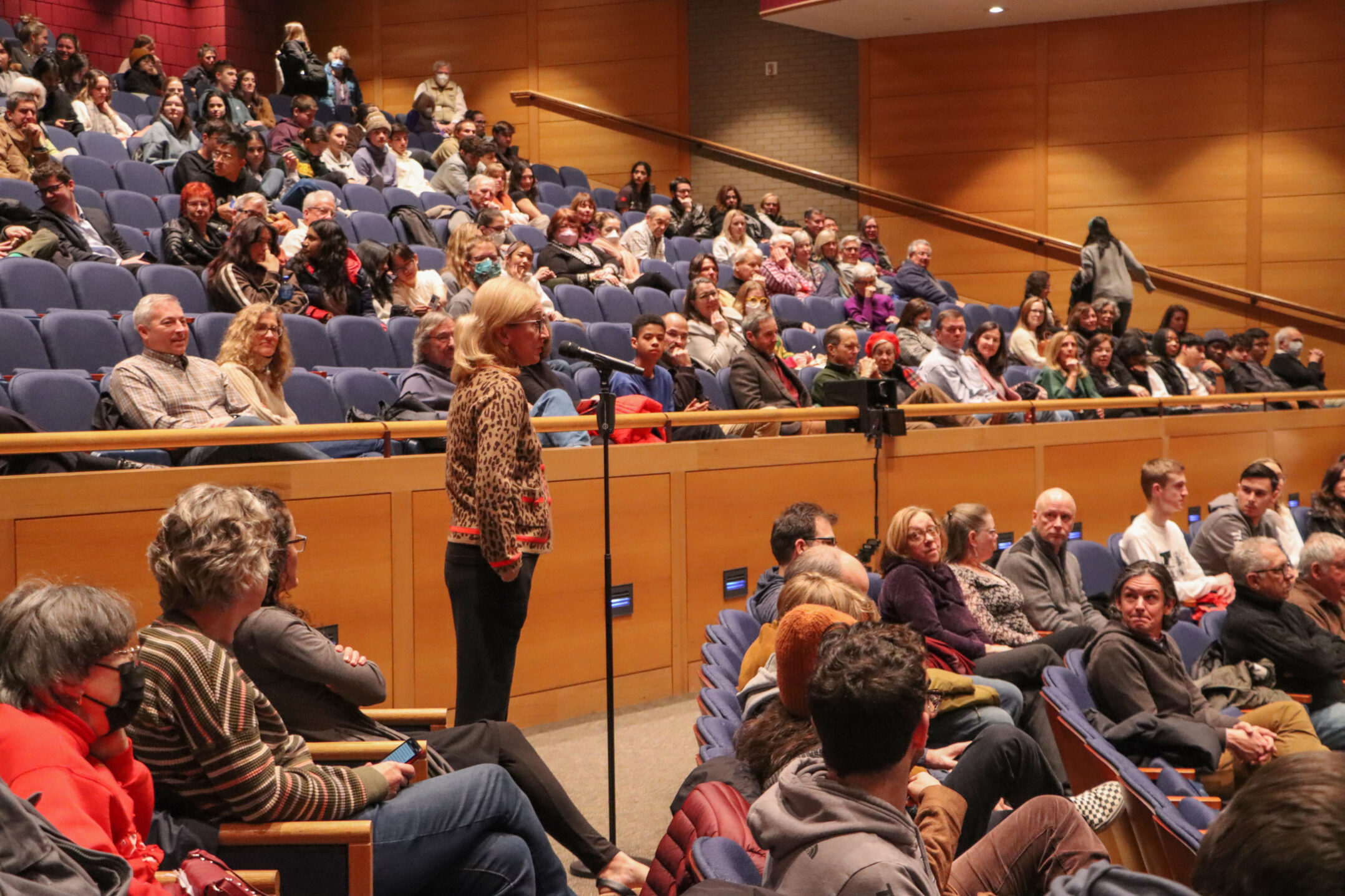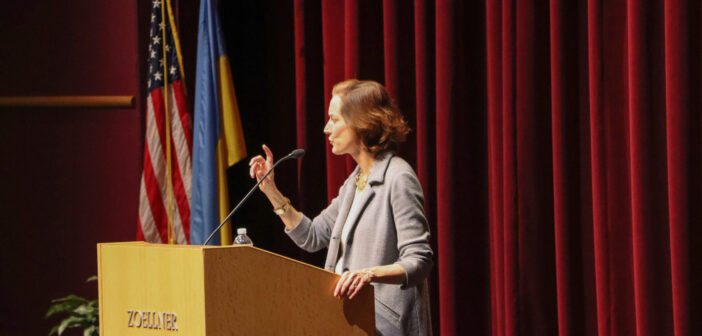Anne Applebaum has had a diverse professional career: she has written lengthy history books, published world-renowned articles, vigorously debated politics with her peers and delivered esteemed keynotes. She now adds Lehigh’s Kenner Lecture on Cultural Understanding to her list of endeavors.
Applebaum, a Pulitzer Prize winning historian, journalist, commentator on geo-politics and keynote speaker, discussed the topic of “Disinformation and the Threat to Democratic Institutions” in Baker Hall at Zoellner Arts Center on Jan. 31.
The annual Kenner Lecture was established in 1997 by Jeffrey L. Kenner, ‘65, ‘66. It is an endowed lecture series hosted by the College of Arts and Sciences that has previously brought speakers, including Ezra Klein, Madeleine Albright and Judy Woodruff, to campus.
According to Lehigh’s website, the lecture often looks for speakers who question commonly held beliefs.
Mary Anne Madeira, a professor of international relations who mediated a roundtable discussion with Applebaum and selected students before the lecture, said Applebaum’s lecture topic embodies her longtime interest in authoritarianism and the appeal of nationalism within liberal democracies.
Applebaum’s book, “Twilight of Democracy,” draws connections between liberal politicians and online disinformation in the U.S. and other Western democracies. The book makes a more general argument about why similar politcal trends occur worldwide.
Madeira said she has followed Applebaum’s work in The Atlantic for the last few years, particularly her coverage of the war in Ukraine and the rise of fascist and nationalist movements across the globe.
In the lecture, Applebaum discussed the evolving nature of democracy, especially as it relates to the roles that the internet and social media play in current society.
Applebaum explained that the decline of social capital — or networks of relationships — in the U.S. is due to the disappearance of clubs, committees, community and solidarity.
“Now, as internet platforms allow Americans to experience the world in a completely different way, from a completely personalized lens, this problem (of democracy and disinformation) is morphing into something different,” Applebaum said.

An attendee of the Kenner Lecture directs a question towards Applebaum. (Christina Perrier/B&W Staff)
She described the problem as a “wholesale transfer” of entertainment, social interaction, education, commerce and politics from the real world to the virtual world — a process that was most likely accelerated by the coronavirus pandemic.
She said instead of participating in civic organizations that provide people with practical experiences, people are looking at very biased online groups instead.
“(People) click one like or share, and then they move on,” Applebaum said. “Instead of entering a real-life public square, they drift — often anonymously — into digital spaces where they rarely meet anyone who disagrees with them, and when they do, their instinct is often to vilify them.”
She said the virtual public sphere is not governed by the rules to serve democracy but by the rules set by few for-profit companies. Algorithms are designed to overtake people’s attention, harvest data and advertise.
Applebaum said the angriest and most aggressive ideas are amplified while the reasonable, rational, quieter and nuanced voices are harder to hear.
“What’s the effect of that? Radicalization spreads more quickly,” Applebaum said. “But also Americans feel more powerless, because they are.”
Social media platforms are not solely to blame, in her eyes, because hyper partisanship and conspiracy thinking also play a role.
Applebaum said the buttons people press online feed back into the algorithm and are used to profile and target people through advertising.
Amalia Sanchez, ‘26, said she was intrigued by Applebaum’s background as a historian and journalist and was curious to hear what she had to say about the lecture’s topic.
“My takeaway from the lecture was how disinformation can lead to widespread terror on democratic institutions,” Sanchez said. “I also took away that there is a drastic difference between how Republicans and Democrats use disinformation to their advantage, and how oftentimes there are many threats to democratic institutions as an effect of this disinformation.”
Applebaum suggested some solutions to the issue, including fostering a more sustainable internet by doing things like allowing users to appeal their deleted accounts, being in charge of one’s own data and choosing what type of data to share.
She concluded by suggesting how to work toward an improved and ideal version of the internet.
“Financial bubbles, exploitative commercialization, polarization and dictatorship are problems that democracies have solved before,” Applebaum said. “The solutions are in our history, maybe they’re even in our DNA, or in our memories of how we’ve fixed other broken systems.”






Comment policy
Comments posted to The Brown and White website are reviewed by a moderator before being approved. Incendiary speech or harassing language, including comments targeted at individuals, may be deemed unacceptable and not published. Spam and other soliciting will also be declined.
The Brown and White also reserves the right to not publish entirely anonymous comments.